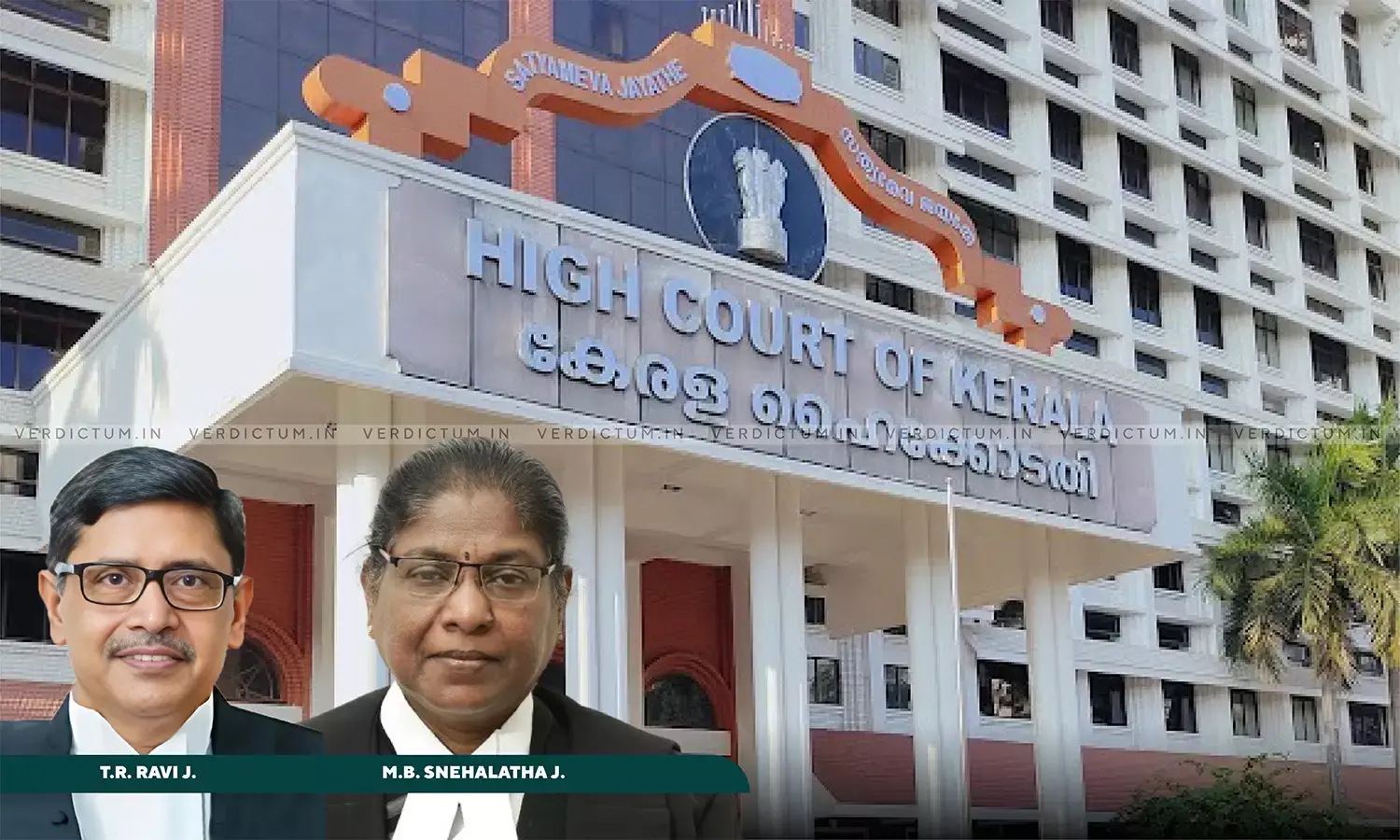Effect Of Statute Regarding Reservation For PwDs Cannot Be Taken Away By Conditions Imposed In College Prospectus For Admission: Kerala HC
The Kerala High Court clarified that the effect of a statute regarding reservation for people with disabilities cannot be taken away by certain conditions imposed in the prospectus for admission to a college.
The Court upheld the decision of the Single Bench which directed the Commissioner of Entrance Examinations to re-consider the eligibility of the students on the basis of the certificates issued to them by the certifying authority under Section 57 of the Rights of Persons with Disabilities (RPD) Act, 2016. The students had submitted that as per Section 32 of the RPD Act, all government-aided institutions must reserve at least 5% of their seats for persons with benchmark disabilities.
A Division Bench of Justice T.R. Ravi and Justice M.B. Snehalatha observed, “The effect of the Statute cannot be taken away by certain conditions imposed in the prospectus. This does not mean that the State is powerless to adopt a uniform procedure when it comes to admissions to the Professional Colleges. It is always open to the State to declare that the certifying authority for the purpose of admission to Medical Colleges will be the State Medical Board which is to be constituted as per the prospectus.”
Government Pleader P.G. Pramod appeared for the appellants, while Senior Advocate P. Deepak represented the opposite party.
The State challenged the decision of the Single Bench regarding the eligibility of students for reservation in medical and allied courses under the category of ‘persons with disabilities’. The students had earlier gotten disability certificates from certifying authorities under the RPD Act, 2016. However, their eligibility was questioned by the State Medical Board, which considered their disability to be below the required threshold of 40%.
The students submitted that when the Statute already prescribed the method of certifying a person with a physical disability, an extra-statutory method of assessment could not be prescribed by the admission prospectus. Further, Section 2(r) of the RPD Act defined persons with benchmark disabilities as individuals with at least 40% of a specified disability, certified by authorities designated under the RPD Act.
The High Court observed, “We do not find any reason to take a different view from what has been stated in the judgment of the learned Single Judge as regards the law on the point. Unlike the earlier enactment, the 2016 Act specifically provides for certifying persons with physical disability and there is also an appellate remedy available for correction of a mistake, if any committed by the certifying authority. The person with physical disability itself is defined in terms of a certification by the designated Certifying Authority. All that is required is a proper notification under Section 57.”
The Court explained that such a process would ensure uniformity since the very same Board would be considering the case of all the candidates, who were claiming the benefit of reservation and the “mischief caused by the subjectivity” of the decisions by several certifying authorities could also be avoided.
Accordingly, the High Court disposed of the appeals.
Cause Title: State Of Kerala & Anr. v. Adwaitha. S & Ors. (Neutral Citation: 2024:KER:70469)
Appearance:
Appellants: Government Pleader P.G. Pramod
Respondents: Senior Advocate P. Deepak; SC K.S. Prenjith Kumar; Advocate Deepak Raj




